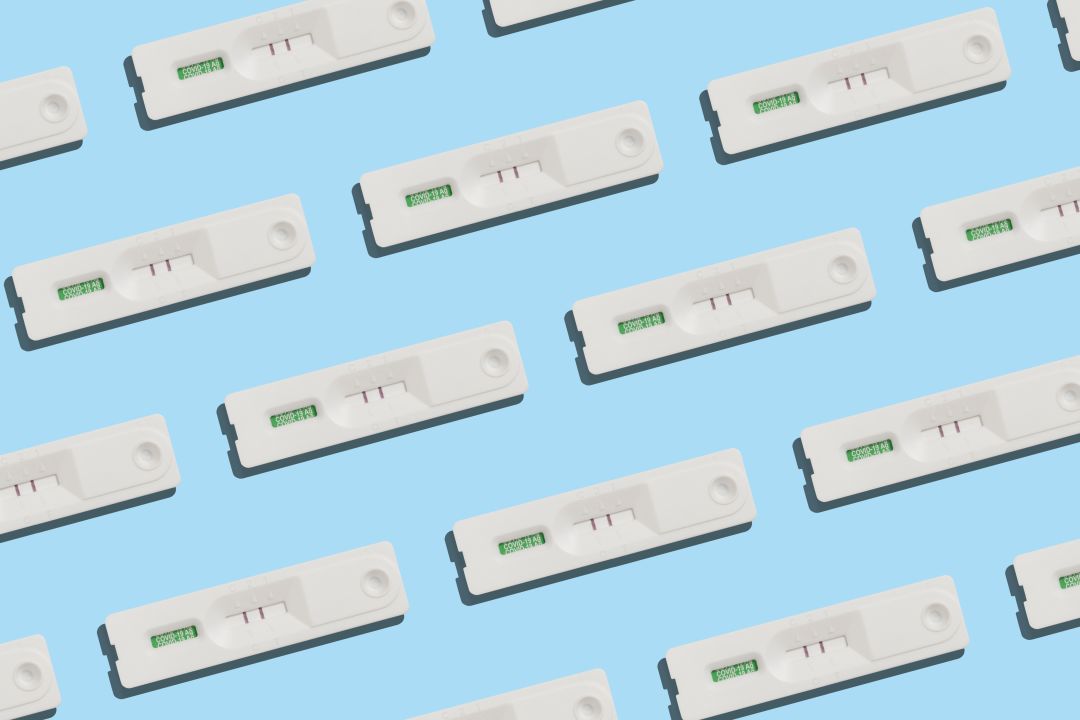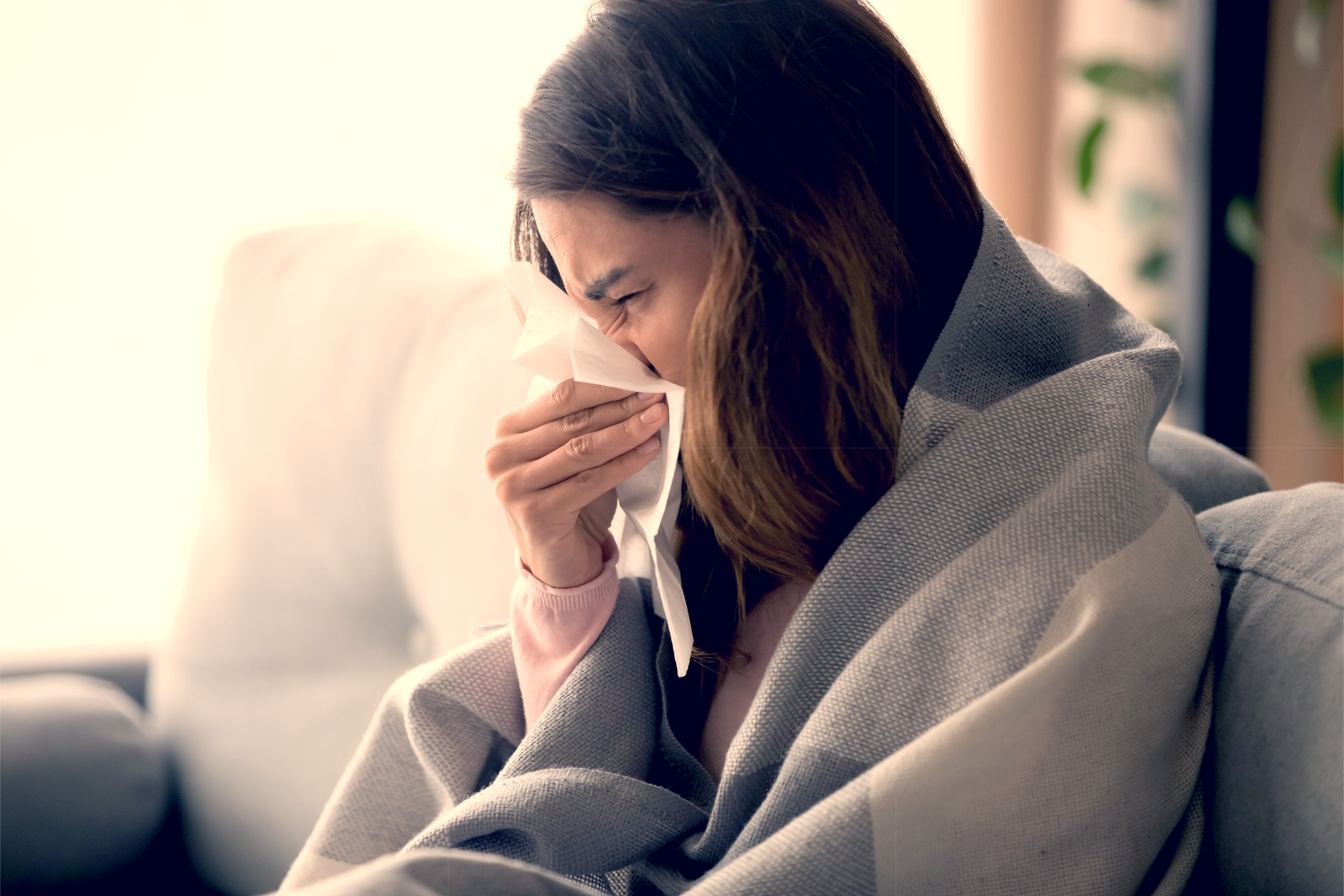What's the Status of Covid-19 in Sarasota-Manatee Right Now?

On Friday, Feb. 4, Sarasota Memorial Hospital infectious disease specialist Dr. Manuel Gordillo posted a Covid-19 video update, addressing the community's questions about the Omicron variant, vaccine developments and what we can expect going forward.
What is the status of the Omicron variant surge?
"The positivity rate is going down in Sarasota. We are also starting to see a decrease in hospitalizations. The peak of the Omicron surge was last week for us. We had 220 patients, but now, we have 140. We’d like to see a faster decrease, but we’ll take any decrease."
How does Omicron compare to previous variants?
"It is milder compared to Delta—but it depends on what you're comparing it with. Compared to the original Covid strain, I would say Omicron is the same as that one, but not as severe compared to Delta. The Delta surge we had in the summer through September was so incredibly destructive. While we were happy Omicron wasn’t as bad, it still stressed our health care system tremendously.
"We had an influx of cases because Omicron was so transmissible. We had a lot of our own healthcare workers becoming ill or their family members getting ill, keeping them from getting to work. Last month, 1,000 employees in our system were sick. That caused a lot of absentees and more difficulty taking care of patients."
How worried should we be about Omicron right now?
"It's a stealthy strain because it can't always be detected without doing genome sequencing. It's also highly contagiousness. We thought nothing would be more contagious than the original Omicron variant, but there is a sister strain of Omicron going around, sometimes called BA-2 (as opposed to BA-1), which is even more contagious, if you can believe that. The good thing is that it’s not more lethal and the vaccine protects you just as well as with the other variants.
"Over time, this sister strain will probably replace the original Omicron strain. Dr. Rochelle Walensky from the Centers for Disease Control said Sunday that only 1.5 percent of Covid cases in the U.S. are this type of sister strain—but as we know, it can grow fast. I would not be surprised if in a month it is the most prevalent strain.
"What will probably happen is instead of having a fast decrease in the Omicron outbreak surge, it is going to be a slower decrease in cases, with a longer tail."
What can we do now to protect ourselves?
"We’ve been wrong so many times in predicting what will happen next with this virus that we do not want to make more predictions. No one expected Omicron to appear the way it did. Nobody expected Delta to be as severe as it was. This is my personal opinion, but when Omicron is gone, which will probably be in another month, we may get a reprieve for a few months, but something else might happen in fall and summer. Over the last two years of summers in Florida, we’ve been hit by something. It could be a pattern; right now, it's just a guess."
"To some degree, we’ve built immunity that will protect us from a surge in cases or a surge in severe cases. Because the vaccines are so good, we aren’t seeing as many people coming into the hospital with severe disease as we saw with previous surges. Looking into the future, even if we get hit by another version of this virus, hopefully we’ll have enough immunity in our systems to prevent these severe outcomes."
Do you expect more variants to arise?
"The majority of scientists studying Covid are predicting there will be variants in the future, just like with influenza and other coronaviruses. There are other coronaviruses that have been circulating for years and they produce colds every winter. I think Covid-19 is going to evolve into something like that."
What does a vaccine for the youngest population (under age five) mean?
"This is the only group that the vaccine is not approved for and parents have been waiting a long time. Kids tend not to get severe disease; however, we don’t know what long-term effects could occur if they're infected with Covid, or who they will transfer the virus to, especially when thinking about immunocompromised. There are distinct benefits to vaccinating children.
"Right now, there's not enough data to determine if the vaccine can be approved for kids under age 5. In December, Pfizer said it will be giving kids a third dose in clinical trials, so we’ll see what happens. This choice was made because of the Omicron variant infecting so many kids."
How important are boosters? Will they eventually be like flu shots?
"There’s a lot to unpack here. First, the booster—traditionally called a booster or third dose—is now considered being 'up to date' on vaccination. I personally think the primary series should include three doses. If you got two doses, your immunity is incomplete; Omicron has shown us that. There is very little protection from mild disease in only getting two shots of the mRNA vaccine. You really need a third shot for protection from mild disease. I think people should get boosters.
"CDC-published data for Omicron shows that three doses protects you about 99 percent from death, which is amazing. There are very few medications in general, in all of medicine, that can give you 99 percent protection from death—but this vaccine does. It also protects you from 99 percent from hospitalization. I think people should get boosters."
How long should you wait to get your booster after you’ve had Covid?
"First of all, I recommend to get the booster. Getting immunity by getting infected is kind of a crapshoot. We know that people who get severely ill get more protection than just getting a mild case. We are awaiting human data to see how well the booster protects you from Omicron or a new variant in future.
"There have been various recommendations, but the majority of scientists say to wait two to three months after recovering from the disease to get a booster. That’s when the immune system has recovered and can take on the vaccine.
"Some other scientists say if you get it two weeks after, you may not get that full boost— but you get an extra advantage which might attenuate long Covid symptoms. Early vaccines can decrease symptoms of long Covid by 20 to 30 percent.
"But from an efficacy point of view, it’s best to wait for the booster until two to three months after infection."
What about vaccine safety?
"Worldwide, 10 billion vaccines have been given already. The vaccine is tremendously safe. It's one of the safest vaccines ever made. Going forward, there’s going to be second generation vaccines, that are protective against all variants. There’s many groups throughout the world studying the vaccines. Another important vaccine in development is the intranasal vaccine, which would prevent you from getting infected to begin with."
How important is it to get vaccinated?
"About 70-75 percent of our town’s population is vaccinated and we have another 10 to 15 percent of the population having acquired immunity through getting the disease. We have a wall of immunity already; about 90 percent of people have some kind of immunity. But that immunity will wane. Antibodies wane about three months after infection."
What do we need moving forward?
"One thing is testing. We are going to need to have [good] testing for the next surge. Testing production can only grow in a linear way. At some point, the demand of tests will exceed the supply. So, for the future, what we need is the government to buy and stockpile for distribution—for example, testing the efficacy of the Pfizer drug, which reduces hospitalization and death by 80 percent if you take it five days within onset of symptoms. We are going to need tests available and ready."
For a list of Covid-19 testing and vaccination sites in Sarasota-Manatee, click here.



